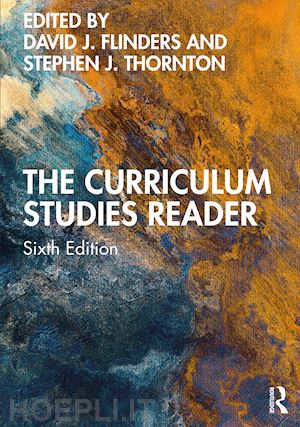Part I; 1. Scientific Method in Curriculum-Making, Franklin Bobbitt; 2. A Critical Consideration of the New Pedagogy in Its Relation to Modern Science, Maria Montessori; 3. My Pedagogic Creed, John Dewey ; 4. The Public School and the Immigrant Child, Jane Addams; 5. Dare the School Build a New Social Order? George S. Counts; 6. Outside Over There: My Book House Divides the World, 1919-1954 Linda S. Levstik ;Part II; 7. Basic Principles of Curriculum and Instruction, Ralph W. Tyler; 8. Man: A Course of Study, Jerome S. Bruner; 9. Objectives, W. James Popham; 10. Educational Objectives—Help or Hindrance? Elliot W. Eisner; 11. The Daily Grind, Philip W. Jackson;12. The Adult Literacy Process as Cultural Action for Freedom, Paulo Freire; 13. Curriculum and Consciousness, Maxine Greene; Part III; 14. The Reconceptualization of Curriculum Studies, William F. Pinar; 15. The Concept of Curriculum Potential, Miriam Ben-Peretz; 16. Implementation as Mutual Adaptation: Change in Classroom Organization, Milbrey Wallin McLaughlin; 17. Black Curriculum Orientations: A Preliminary Inquiry, William H. Watkins; 18. How Schools Shortchange Girls: Three Perspectives on Curriculum, American Association of University Women; 19. Multicultural Literacy and Curriculum Reform, James A. Banks;20. Care and Coercion in School Reform, Nel Noddings;21. What Does It Mean to Say a School Is Doing Well? Elliot W. Eisner; 22. Silence on Gays and Lesbians in Social Studies Curriculum, Stephen J. Thornton; Part IV; 23. Subtractive Schooling, Caring Relations, and Social Capital in the Schooling of U.S.-Mexican Youth. Angela Valenzuela; 24. High-Stakes Testing and Discursive Control: The Triple Bind for Non-Standard Student Identities, Wayne W. Au; 25. Teacher Experiences of Culture in the Curriculum, Elaine Chan; 26. The Bully Curriculum: Gender, Sexualities, and the New Authoritarian Populism in Education, Dennis Carlson; 27. Complementary Curriculum: The Work of Ecologically Minded Teachers, Christy M. Moroye; 28. Moving Beyond Fidelity Expectations: Rethinking Curriculum Reform for Controversial Topics in Post-Communist Settings, Thomas Misco; 29. "We Are the New Oppressed": Gender, Culture, and the Work ofHomeSchooling, Michael W. Apple; 30. Educational Reforms for Survival, Chet Bowers; 31. The future of education in a knowledge society: The radical case for a subject-based curriculum, Michael F. D. Young; 32. Identifying your skin is too dark as a put-down: Enacting whiteness as hidden curriculum through a bullying prevention programme, Rhianna Thomas; 33. Renewing the Spirit of the Liberal Arts, Nel Noddings











